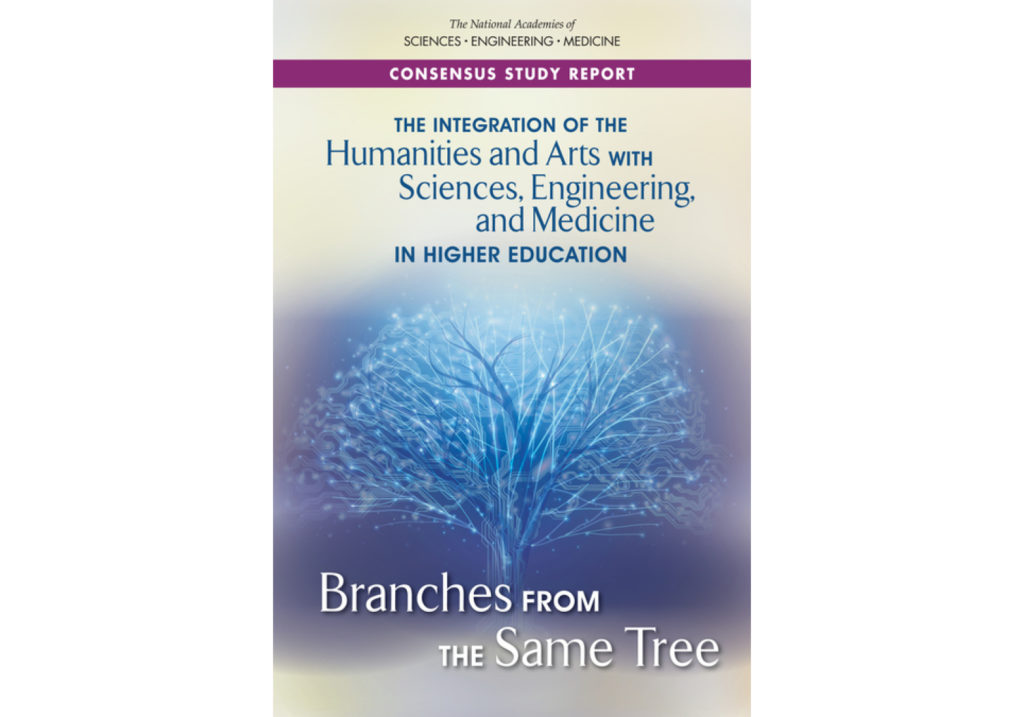Branches from the Same Tree, one of the newest reports from the National Academics of Science, presents the case for The Integration of the Humanities and Arts with Sciences, Engineering and Medicine in Higher Education. The very title signals the impact that it will have on those responsible for spaces now being designed and constructed that are intended to serve the institution with distinction into the future.
Major recommendations in the report focus on auditing current practice as an essential first step in moving toward an intentionally integrated community of practice.
From the report:
Institutions should perform a cultural audit of courses, programs, and spaces on campus where integration is already taking place, partnering with student affairs professionals to evaluate programs and initiatives intended to integrate learning between the class and nonclassroom environment, and working with teaching and learning centers to develop curricular for faculty changed with teaching for or within an integrative experience.
This study examined an important trend in higher education: efforts to return to—or in some cases to preserve—a more integrative model of higher education that proponents argue will better prepare students for work, life, and citizenship. This integrative model intentionally seeks to bridge the knowledge, modes of inquiry, and pedagogies from multiple disciplines—the humanities, arts, sciences, engineering, technology mathematics and medicine—within the context of a single course or program of study. In such a model, professors help students to make the connections between these disciplines in an effort to enrich and improve learning.
Support for Integrative Approaches:
- Individual campus departments and schools, campus-wide teams, and campus-employer collaborations should consider developing and implementing new models and programs that integrate the STEMM fields, the arts, and the humanities.
- Institutions should work to sustain ongoing integrative efforts that have shown promise, including but not limited to, new integrative models of general education.
Recommendation.
- Institutions should perform a cultural audit of courses, programs, and spaces on campus where integration is already taking place, partnering with student affairs professionals to evaluate programs and initiatives intended to integrate learning between the class and nonclassroom environment, and working with teaching and learning centers to develop curricula for faculty charged with teaching for or within an integrative experience.

